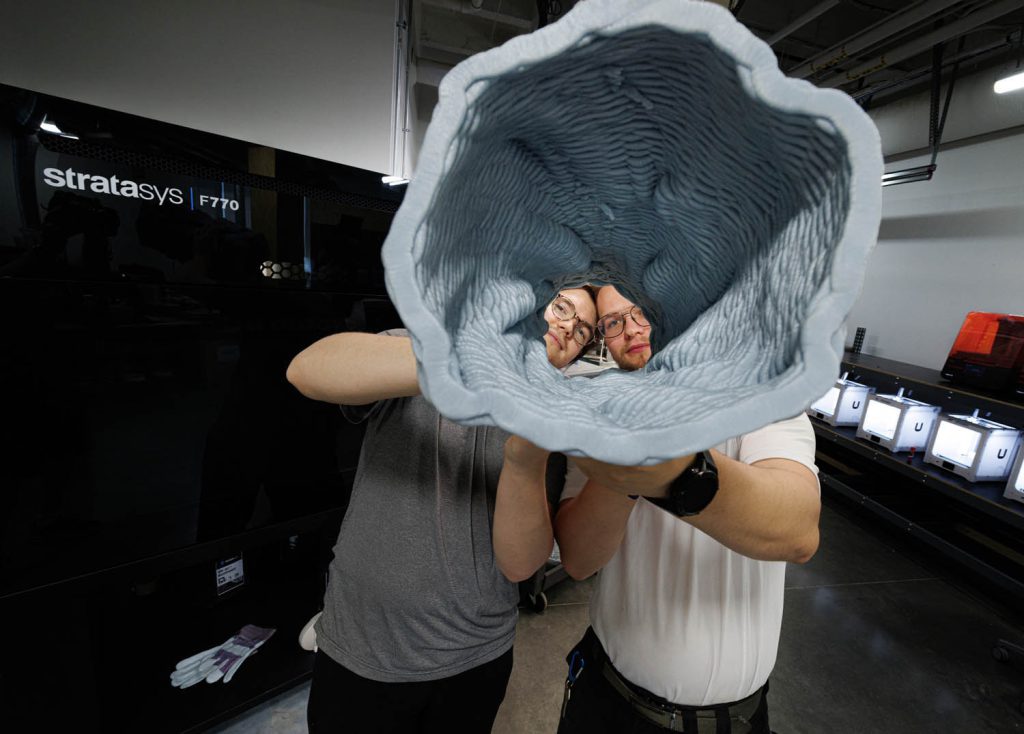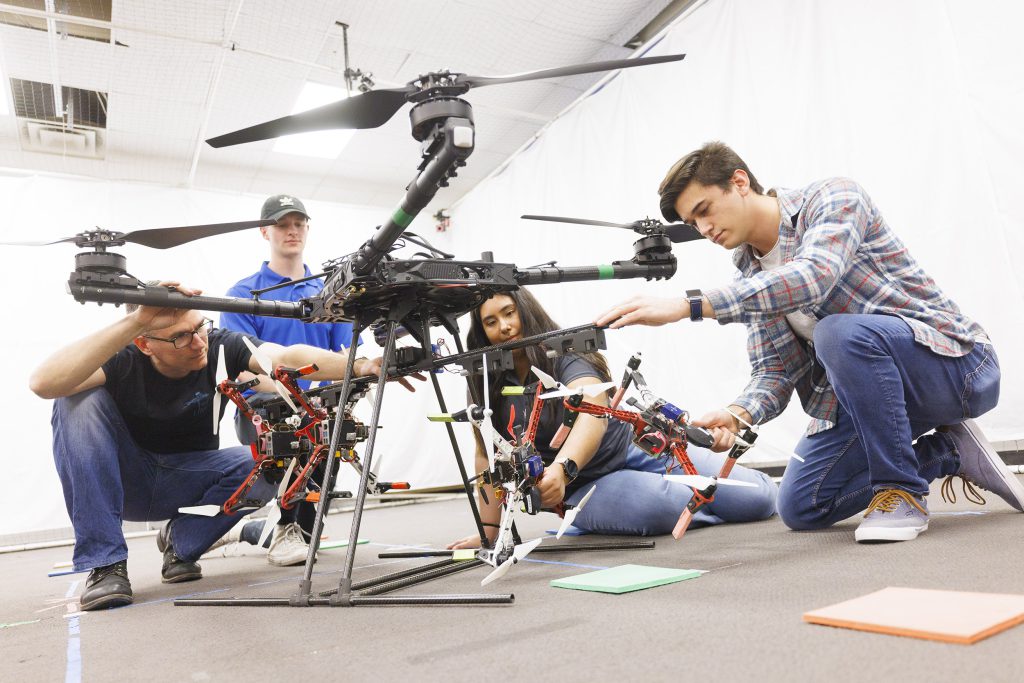Leading robotics innovation
Nebraska is positioned to be one of the nation’s leading research and workforce development centers for robotics and automation in the coming decades.
The state’s proposal to establish the Heartland Robotics Cluster was one of 21 applications – out of more than 500 initially – to receive funding in September 2022 from the U.S. Department of Commerce’s Economic Development Administration. The cluster received $25 million through the Build Back Better Regional Challenge.

Initiative partners are Nebraska’s College of Engineering; the Nebraska Manufacturing Extension Partnership; Metropolitan Community College in Omaha and Northeast Community College in Norfolk; Nebraska Innovation Studio; and Invest Nebraska-The Combine.
Nebraska’s vibrant agricultural and manufacturing sectors, both already embracing automation, are key reasons the proposal was selected, said Mark Riley, the College of Engineering’s associate dean for research. Nebraska also boasts a base of middle- and high-school students eager to embrace robotics education, evidenced by the state’s No. 4 ranking in the nation in per-capita involvement in robotics competitions.

Riley said he is excited by the potential for undergraduate and graduate education in the field, which includes helping young people see themselves as future entrepreneurs and recognize they can build their careers in communities across the state, rather than leaving Nebraska.
Dan Hoffman, chief executive of Invest Nebraska, which manages the cluster, said funding will support several university efforts, including: enabling the Nebraska Manufacturing Extension Partnership to develop an automation demo space and programming for Nebraska manufacturers; growing the robotics engineering curriculum for undergraduate students and building R&D robotic lab space; and, on Nebraska Innovation Campus, expanding the robotics makers space at Nebraska Innovation Studio and increasing technical assistance for robotic ag-tech startups managed by The Combine.
At Northeast Community College, it will create an automation fabrication lab, and at Metro Community College, it will develop urban ag/robotics outreach and training. The community college efforts are especially aimed at reaching underserved populations – Northeast to rural Nebraskans and Metro to urban residents, Hoffman said.
An industry advisory board composed of small- to medium-sized manufacturers interested in automation is providing guidance.
+ Additional content for Leading robotics innovation
News release: $25M federal award to expand robotics development, entrepreneurship, outreach








